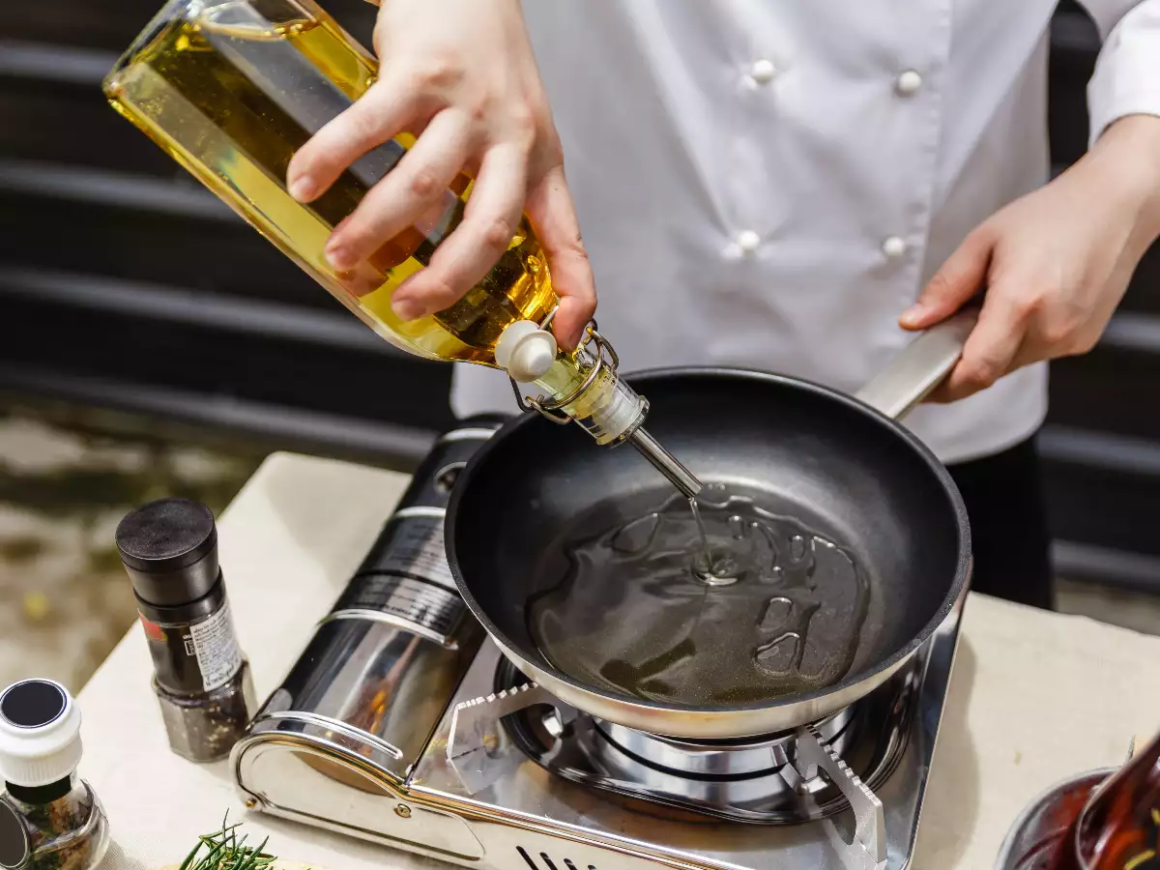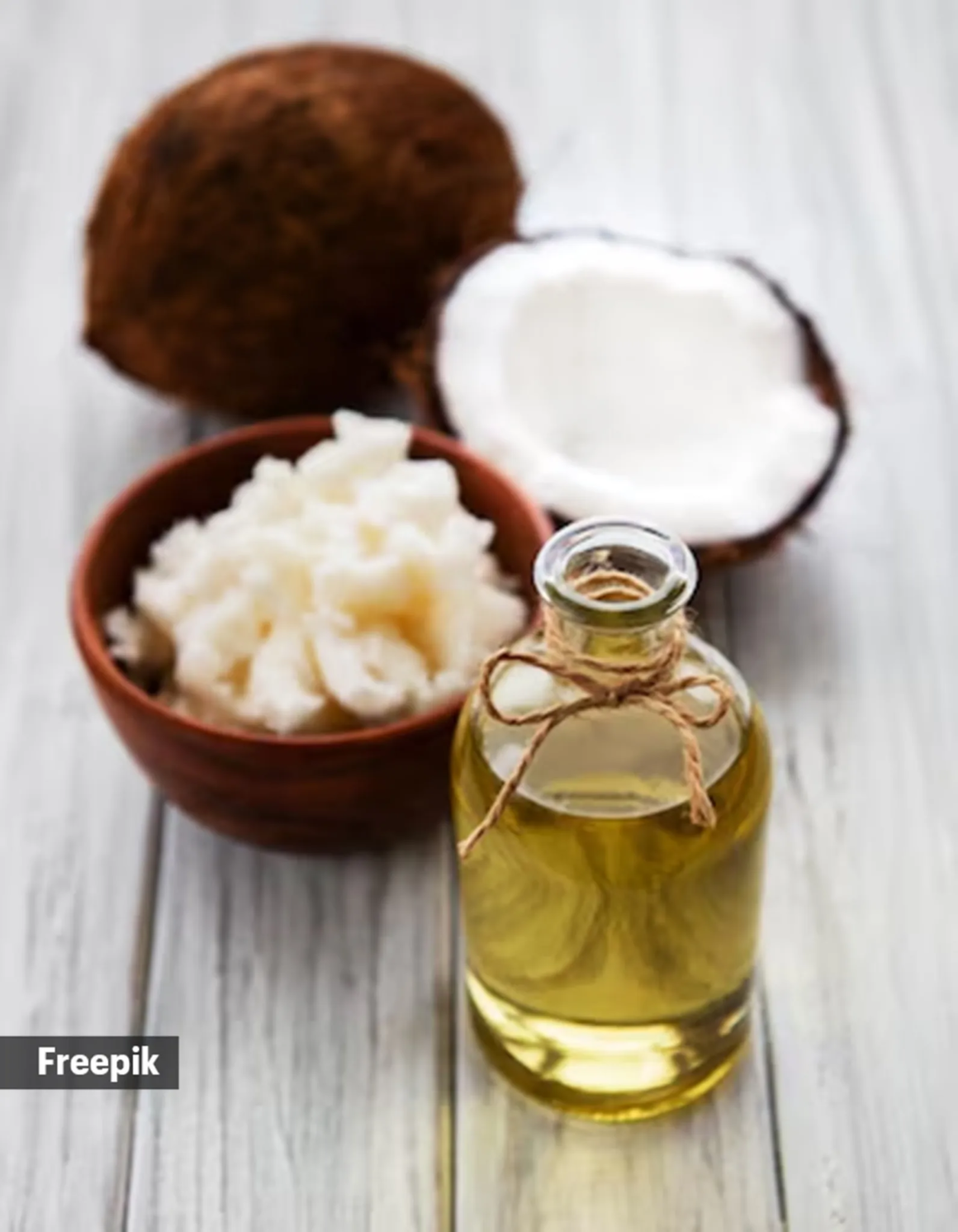Choosing the right cooking oils becomes essential for people keeping a fast in order to preserve the vrat’s purity and guarantee optimal nourishment.

cooking oils : In Hindu religion and customs, fasting, or vrat, is an important practice that is used for devotion and spiritual cleansing. Adherents frequently adhere to strict dietary rules during these times of abstinence, which include the kinds of oils used in meal preparation.
Choosing the right cooking oil becomes essential for people keeping a fast in order to preserve the vrat’s purity and guarantee optimal nourishment.
Important nutritional factors to take into account while selecting cooking oils during vrat:
Consultant dietician and certified diabetes educator Kanikka Malhotra advises prioritizing purity and provenance while selecting an oil for cooking during vrat and using cold-pressed oils from approved suppliers. Take into account the smoke point of the oil when cooking safely, particularly when using high temperatures.
She says that although there are variations in vrat limits, in general, oils high in monounsaturated and polyunsaturated fats are better choices. Depending on dietary choices and taste, balance refined and unrefined oils.
Popular options include mustard oil, ghee, and groundnut oil; however, their appropriateness varies according to certain vrat regulations. Use oil cautiously at all times, and make sure the labels follow any dietary restrictions.

Certain oils that are generally suggested or favored during vrat:
The selection of cooking oils for vrat frequently depends on regional, cultural, and religious considerations, claims Malhotra. Because groundnut oil has a neutral flavor and is widely available, it is a perennial favorite. Since it supplies necessary fatty acids without dominating the flavor of the dish, it’s frequently seen as a balanced solution.
Clarified butter, or ghee, is another common ingredient in many Hindu homes. The cow is considered a holy animal in Hinduism and represents motherhood and nutrition. Ghee is considered a sacred substance as it is created from cow’s milk. Ghee’s reputation as a healthy diet is partly attributed to its abundance in fat-soluble vitamins and important fatty acids. Some people might be concerned about its high saturated fat level, though.
“Mustard oil is frequently used in vrat cooking; it is especially popular in North India.” Its unique flavor goes well with a lot of vrat-worthy recipes. Although it may not be utilized everywhere during vrat, certain areas use coconut oil because of its distinct flavor and high saturated fat content.
Oils that, for moral or medical grounds, must be avoided during vrat:
Malhotra notes that while numerous oils can be used to prepare for vrats, several should usually be avoided because of health or religious reasons:
Avoid these oils:
- Refined Oils: These are heavily treated and frequently include additives that may not be in line with the vrat’s requirement for purity.
- Vegetable Oils: Made from a variety of seeds, these oils are frequently highly processed and include trans fats, which are harmful. Generally speaking, they are not regarded as pure or sattvic.


